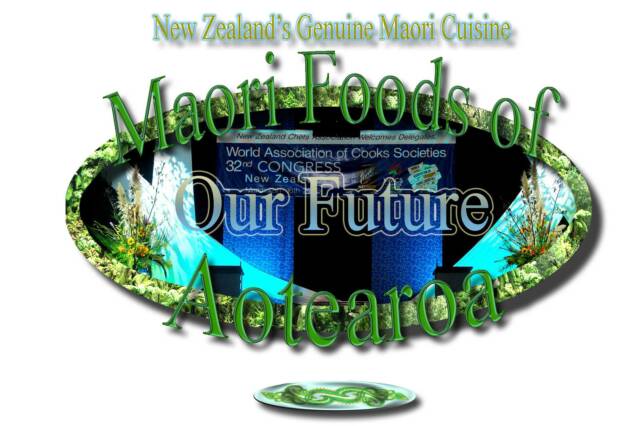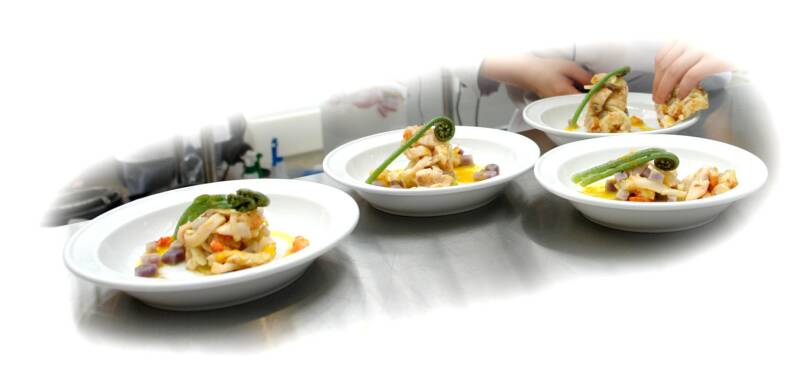Kia ora, you are the visitor to this page
Copyright © 2006
All content on this site, remain the property of Epuro Hands International Limited and are protected by New Zealand and International copyright laws.
No part of this website may be reproduced without the expressed, written permission of
The Journey Ahead to
Contemporary Maori Cuisine
The Maori people had to adopt to modernism and I guess so did everyone else around the planet. However for those who chose to preserve traditional knowledge, cooking methods and rites to maintain a hold on their culinary food culture did so in isolation. The benefits we will demonstrate throughout this website.
The changes in our food culture began around the early 1700's with the introduction of fruits, animals like the feral pig, the potato, metal tools and of course the pot. New skills were acquired to plant, harvest and in some cases to prepare, cook and eat new products like the corn. Waiting until they rot was one way which still remains today as a delicacy, recipes you will find in this website. These changes made life easier for Maori example the potato, it was easier to grow, required less maintenance, grew quickly and the yield per tuber was higher in return than the kumara.
Most traditional foods just cannot be revived simply because the knowledge to do so has been lost and traditional ingredients are no longer available. they simply do not exist anymore due to loss of habitat and change in the environment, changes of the Lore for a new Law.
Native birds, some plants and fishing zones are now protected by law to preserve what remains of our unique environment and to save what we have left to maintain the last of our living national icons. On the right hand side of this page are dishes taken from the Wellington Food Show 2006 competition. We have placed them here to demonstrate what we would like to do to lift normal fare at most Marae across NZ to a higher level.
Trained Chefs and Traditional Practitioners who have the knowledge, skills and research in traditional Maori cooking and food concepts have been invited to share their knowledge with their kind permission.
Ka nui na mihi kia koutou, na Tohunga Mahi Kai, Tunu Kai, e matatau ana ki tera Taonga ki te tuku ki te Ao Hou. kia ora
Maori and the
Hospitality Industry
Traditionally two meals were taken daily, the first around 9am and the other around 4pm. Otherwise a single was had. The household ate together.
A Tohunga (Priest) generally ate his meals alone. Usually only one dish was served which consisted of a variety of meals served together. The food was served in rourou baskets made of flax (plates) or on a taka (mat) of plaited flax. Maori worked hard and rested when they could to reserve. Daily chores were done in the early morning being early risers.
When visitors arrived everything was bought out for them to enjoy and the families never ate with them until they left. They never ate together their primary task being to entertain and care for their guests. For most Maori this practice remains, for some it has been forgotten.
Huge changes occurred in the past 160 years for Maori and in so doing have lost their traditional food culture all together. Maori who have held onto their traditions in food, entertainment and hospitality are renowned.
What kept Maori together was Whanaungatanga, Manakitanga, Arohatanga, and Iwitanaga but list is but a portion of a bigger list. In the past basic survival kills generally taught in schools were taught to Maori on the Marae and one of those skills was hospitality from the garden to the kitchen to the dining room and eventually to the paepae.
Contemporary Maori cuisine has changed the way Maori food is being prepared and served. To demonstrate this Maori Chefs, cooks and whanau have been invited to demonstrate their skills and will be available soon on this website.
Traditional Maori Food does have a place and that place is on the Marae. It ties our present back to our past and keeps it there
Dishes Possible for the Marae
Traditional Maori Greeting (Margarine)



